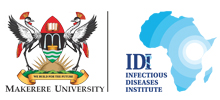
Implementation Science Capacity Building for National Public Health Institutes
Delivery Mode: Online
Eligibility: National Public Health Institutes Workforce
Course Availability: Restricted
Course fee: Open Access
Overview
The Implementation Science Capacity building for National Public Health Institutes is an intensive eight-week program. The overall aim of the course is to strengthen National Public Health Institutes (NPHIs) across Africa through developing the capacity of the NPHIs workforce in Implementation Science. The specific aim of the course is to build the capacity of NPHIs to transform research outputs into public health action and policy. The course is intended for the NPHI workforce who utilize evidence to enact program changes in healthcare and include public health professionals, clinicians, health service managers, and policymakers. The course will be offered as a virtual program (online community of practice’ – zoom-based seminar series) focused on Implementation Science. The course consists of eight modules that are hosted on the Infectious Diseases Institute’s Virtual Learning Environment (VLE).
By the end of this course, participants should be able to:
- Have a foundation to develop and implement strategies to accelerate the translation of evidence into practice, policy, and public health.
- Acquire knowledge and skills on how to develop trusting relationships and impactful research with the community and prepare community partners to engage in health research.
- Familiarize with approaches to evaluating an evidence-informed health program or intervention implemented in a clinic or public health setting.
- Appreciate health behavior change theories across a range of socio-ecological contexts and intervention design frameworks.
- Understand when mixed methods study designs are applicable in research.
- Understand the alternatives to individual randomized control trials that can be used to evaluate interventions placed in real-world settings.
- Acquire tools for understanding and diagnosing problems in the key elements of healthcare organizations, including organizational structures and forms, organizational culture and climate, systems of power and control within healthcare organizations, and the organizational environment.
- Understand the policy process and how they can become information brokers capable of using evidence to inform the policy process.
Format
This course will include an asynchronous self-study session (4–6 hours) to help learners acclimate to a core course concept followed by a synchronous self-guided live session (2.15 hours) on the related concept that is conducted collectively amongst national institutes of public health partners. During the asynchronous and synchronous community of practice (CoP) sessions, the following topics will be covered Each of the topics will be structured in a pre-recorded lecture, with materials to be pre-read by course participants one week before the synchronous CoP session. The 2.15-hour synchronous CoP learning session will include listening to a pre-recorded lecture to help learners acclimate to a core module concept followed by a discussion on a related concept that is conducted collectively enabling participants opportunities to interact with implementation Science experts and learners from NPHIs.
Assessment
At the end of each module, an assessment of the trainees’ understanding of the module concepts will be done. Trainees will be expected to attend all the modules and develop a one-page concept of an evidence-based intervention (including policy or guidelines) that they are planning to scale up. Trainees will then use the learnings from the course to improve their concepts. At the end of the eight weeks, trainees will be expected to submit an advanced concept of their project.
At a glance

